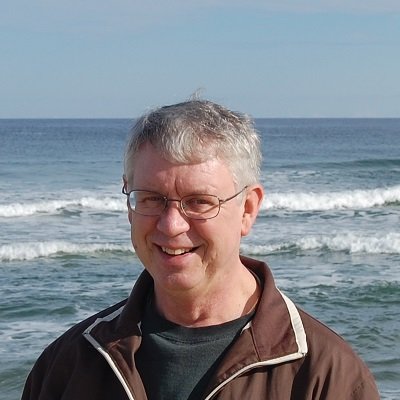Meet EPA Researcher Andy Miller, Ph.D.

Andy Miller is a senior science advisor with EPA’s Integrated Climate Sciences Division. Dr. Miller primarily works on developing the internal and interagency organizational infrastructures to support moving climate research into practice. He also works to advance understanding of the new challenges created by unprecedented climate change impacts and responses. Much of Andy’s work is developing the processes and connections to be effective in providing climate services and supporting EPA’s climate adaptation efforts. He is also reading through sections of the National Climate Assessment to make sure that the comments identified in the final review period have been adequately addressed. When he gets a chance, he works on summaries of climate intervention techniques and why they matter to EPA.
Tell us about your background.
I have a bachelor’s, master’s, and Ph.D. all in mechanical engineering. The first two degrees are from the University of Arizona and my Ph.D. is from North Carolina State University.
When did you first know you wanted to work in environmental science?
I don’t recall a specific moment when I realized I wanted to work on environmental issues, but after reading Critical Path by Buckminster Fuller I began to think about how to use my training and skills for the common good. I joined EPA almost by accident, but the fact that they were doing work on climate change even back in the early 90s was a big reason I came to work with the Office of Research and Development.
What do you like most about your job?
The work matters.
How does your science matter?
How it matters is somewhat different than why it matters. We’ve developed rigorous processes to ensure that our science is solid and transparent, and we’ve created strong relationships with our regulatory partners to help keep them informed about that science. These are two approaches that are crucial for making our science matter to the development of policies that protect health and the environment.
If you weren’t a scientist, what would you be doing?
I’d be doing some sort of engineering work, probably related to energy. I’ve always had an interest in energy, dating back to the early 70s when I made my own solar cell at home!
What advice would you give a student interested in a career in science?
I always encourage students to learn how to improve their writing and public speaking. I also encourage students to study the social context of science, whether the study is formal or informal. It’s good to understand the context of their work such as, why is the work important, what other factors do decision makers need to consider, and what are the concerns of the public?
If you can have any superpower, what would you choose?
Flying. What could be cooler than that?
What do you think the coolest scientific discovery was and why?
I’m torn between the discovery of X-rays and the discovery of microscopic organisms. Both made people realize there was much more to the world than what we can see.
If you could have dinner with any scientist, past or present, who would you choose and what would you talk about?
Perhaps not a scientist as we currently think of them, but I’d like to meet with the person who figured out that it was possible to extract metal from ore. That was an incredible leap of imagination. We could talk about all the things that their discovery has made possible.
You are stranded on a desert island; how do you use science to survive?
I use my satellite phone and GPS, both made possible by science, to let rescuers know where I am, demonstrating that one of the more important tasks of science is to carefully define the parameters of the question you are asking.
What do you think is our biggest scientific challenge in the next 20/50/100 years?
The biggest challenge for science is to build trust with the public. That may require us to change the incentives for career advancement but that’s a small price to pay if we can rebuild trust in what we do.
Editor's Note: The opinions expressed herein are those of the researcher alone. EPA does not endorse the opinions or positions expressed.
